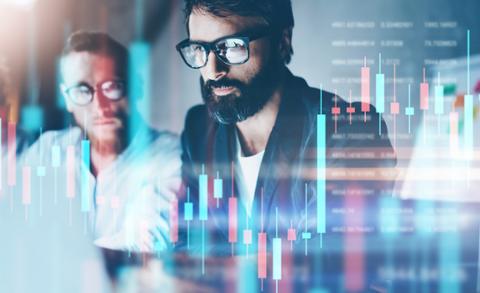According to a recent report by PwC, some 73 percent of U.S. companies already use artificial intelligence (A.I.) in some aspect of their business. However, adoption by industry, and the resulting demand for technical talent, has been far from uniform. A handful of sectors are leading the way in terms of investments, implementation and the growth of startups that support specific vertical needs.
Proactively transitioning to a trailblazing industry that stands to reap the greatest benefits from A.I. can help tech professionals gain experience, take advantage of emerging career opportunities and control their fate going forward.
Here’s a look at some of the industries that are soaring with a big assist from A.I.
Financial Services
The financial services industry, including banking and insurance, has become the frontrunner in A.I. adoption. The fervor for A.I. is further reflected in the growth of startups and projections that financial institutions will double their spending on A.I. by 2027.
While reports show that the most mature use cases are in customer support and personal banking, data analytics and A.I. are now being applied to revenue forecasting, stock price predictions and risk monitoring. The use of A.I. in fraud detection and prevention and credit risk management is gaining popularity as well.
Despite a slight decrease in A.I.-related job postings in finance and insurance over the last few years, there continues to be a robust demand for skilled professionals in traditional companies as well as FinTech startups.
Legal Services
While business and accounting firms are pouring more money into A.I., the legal profession has been out in front when it comes to the rapid adoption of A.I., noted A.I. futurist Steve Brown.
"Legal is ahead of the curve in adapting to the future of work, which will include A.I. agents that are fine-tuned for a particular industry and will operate like personal assistants, often integrating with third-party apps and software," Brown explained.
So far, A.I. has been able to help lawyers and paralegals accomplish tasks that are tedious or expensive to complete, but opportunities for improvement are everywhere.
For instance, the need for efficiency and cost-saving benefits has spurred the growth of startups such as Casetext, which was recently purchased by Thomson Reuters. Other examples include CaseMark and Harvey, a natural language interface for editing legal documents or performing legal research which recently emerged from stealth mode.
In fact, as clients demand more for less, law firms are increasingly hiring A.I. experts, software engineers and data scientists to outpace their competitors.
Healthcare: Medical Research/Pharmaceuticals
"If there’s any industry that stands to benefit from A.I., it’s healthcare," noted Dr. James Canton, CEO and chairman of the Institute for Global Futures and author of “Future Smart: Managing the Game-Changing Trends that Will Transform Your World.”
From diagnostic algorithms and predictive analytics to wearables, virtual health assistants and administrative optimization, there are numerous startups looking to impact the future of healthcare.
However, due to the domain-specific nature of healthcare, the best opportunities currently exist in two subsectors –medical research and new drug development–where the use of A.I. and machine learning (M.L.) has already had a major impact.
As examples, Canton points to generative A.I. tools such as the NVIDIA Clara’s BioNeMo, which can speed up the drug discovery process. Then there’s AlphaFold, an A.I. program developed by DeepMind which predicted the structures of 200 million proteins, providing a road map for new drug targets.
Manufacturing: Robotics
Manufacturing comes in second in terms of A.I. adoption rates, which is not surprising given that the sector has already been using advanced technology, including robotics for quite some time.
However, A.I. and M.L. are pushing the boundaries of what robots can do. For instance, A.I. robots are able to tap into machine learning algorithms to automate decision-making and repetitive tasks on manufacturing lines.
Specifically, Brown points to the development of humanoid bipedal robots as a game changer, because they can perform complex tasks and operate safely alongside humans in small spaces.
Speaking of robots, we are also going to see an increase in the use of autonomous delivery robots or drones, buddy bots as well as autonomous security robots like Spot noted futurist Thomas Frey.
Frey notes that the evolution of bots and drones will have a significant impact on industries and sectors beyond manufacturing, such as construction, engineering and materials, as cities look to build mini or pop up airports for drones and air taxis.
Real Estate
According to a Dice.com analysis, education and real estate have seen some of the biggest leaps in A.I.-related job postings over the past few years. The trend suggests that these are industries where A.I. can make the biggest difference and will soon be boosting their adoption rates and generating compelling use cases.
Currently, A.I. algorithms and tools are being used to analyze real estate data, predict supply and demand, inform underwriting and risk decisions and enhance marketing efforts but that’s only the tip of the iceberg. In fact, McKinsey believes that generative A.I. could generate $110 billion to $180 billion or more in value for the real estate industry.
Joining an established real estate company or a promising A.I. startup soon rather than later, can keep your career ahead of the curve in the age of A.I.



